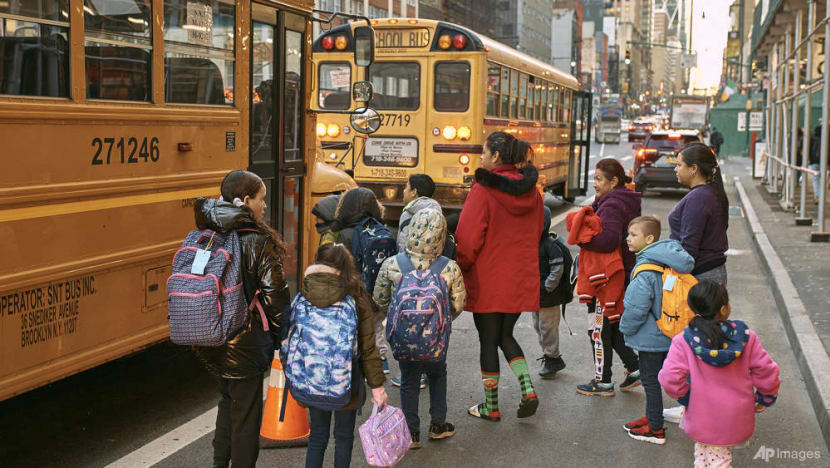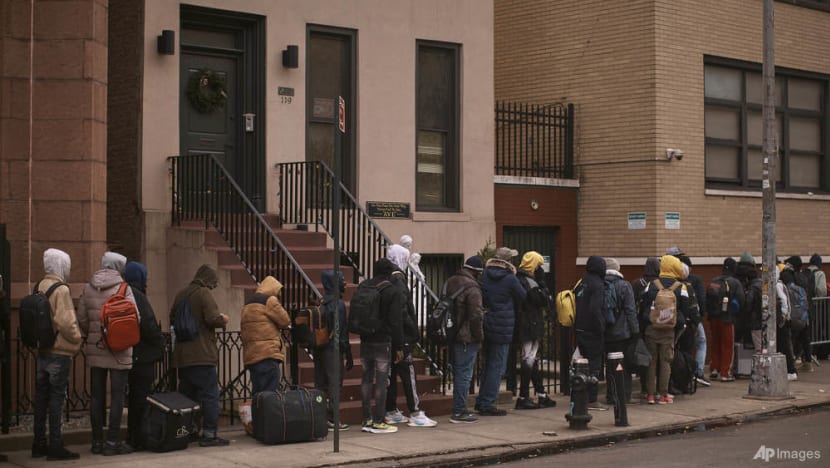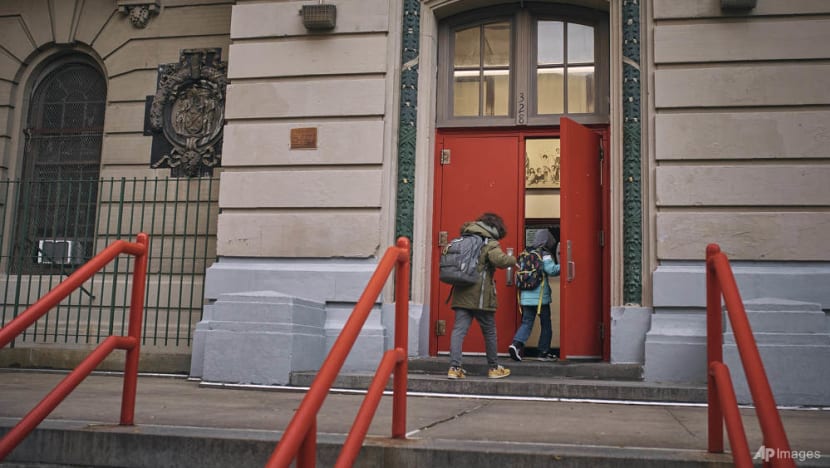‘Down, depressed and worried’: Advocates raise mental health concerns for child migrants in the US
Advocacy groups warned that the migrant situation could turn into a mental health crisis if it is not addressed urgently.


This audio is generated by an AI tool.
NEW YORK: The mental health of child migrants arriving in the United States has come under the spotlight, with studies showing that displacement and trauma can lead to psychological, behavioural and emotional problems in young people.
This comes as an estimated 300,000 immigrants crossed the US-Mexico border last December, which is an all-time monthly record. Among those arriving are thousands of children who are travelling alone or with their families.
Advocacy groups warned that the migrant situation could turn into a mental health crisis if it is not addressed urgently.
LONG WAIT TO RECEIVE HELP
In New York City alone, an estimated 168,000 people have arrived in the past 18 months, with a third of them being school-age children, according to city data.
Many of them, mostly travelling from South America and often fleeing violence, cross into the southern US states and then travel up to New York.
An asylum seeker, who only wanted to be known as Maria, said: “It has been a huge change, learning another language (and) another culture. The language has been difficult.”
Many of the migrant children arrive in the city with nothing, except harrowing stories from their journey.
But observers said it can be a long wait for them to get support.

“They may be hungry and struggle to sleep at night, and then when they go to school, you may see them down, depressed or worried about their family,” said mental health counsellor Gabriela Munoz De Zubiria from Fordham University’s Clinical Mental Health Services.
“A child can also experience a lot of anxiety depending on what they're facing at home or even migration trauma. We can see symptoms of (post-traumatic stress disorder) in children as well.”
MIGRANT CHILDREN FACE INSTABILITY
In December last year, an 11-year-old boy was found unconscious at a migrant shelter with a shoelace around his neck, and died soon after.
The boy was staying in the Stratford Arms Hotel, one of New York’s many hotels housing migrants and part of the city’s overstretched shelter system.

Last October, New York City Mayor Eric Adams announced that he is limiting shelter stays for migrant families with children to 60 days, in a bid to ease the strain on the housing system overwhelmed by the large influx of asylum seekers over the past year.
However, some observers believe this will add to the pressures that many of these children are already facing.
“When children are forced to move around, it creates instability. Their mental health is impacted,” said Ms Ilze Thielmann, director of Team TLC NYC, an organisation which assists asylum seekers and migrants in New York City.
“When children are forced to change from school to school, they're already behind because a lot of them have been travelling for months to get here in the first place, so they've missed school.
“They don't speak the language, so they're already at a disadvantage. They settle into a school and then have to leave, and start all over making new friends (and) trying to catch up.”
A DRAIN ON FINANCIAL RESOURCES
New York officials have warned that their budgets are stretched to the limit, and are calling on Washington to provide more funding and tweak its immigration policies.
The Biden administration, though, has criticised the city's management of the migrant crisis.
Meanwhile, Mr Adams is cutting the costs of feeding and housing migrants by nearly US$2 billion.
But advocates who work with children seeking asylum cautioned that this tactic could backfire, and eventually become more of a financial drain on city resources in the long run.
They added that for migrants hoping to start afresh in the US, the wounds that are most difficult to see could take the longest time to heal.
Health economists stressed that investing in early mental health identification and intervention is important, and can ultimately save costs.
“If you do it right, the knock-on benefits are enormous. And if you miss the opportunity, there are negative consequences down the road that we all will have to live with,” said Dr Peter Navario, executive director at health and human rights organisation HealthRight International.
“It's really incumbent upon governments and civil society to address these issues when they occur, and in as holistic and comprehensive a manner as they possibly can.”
















